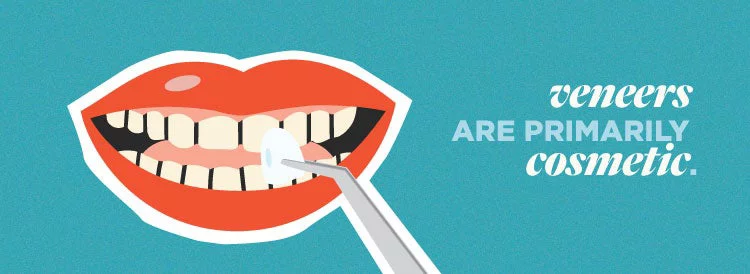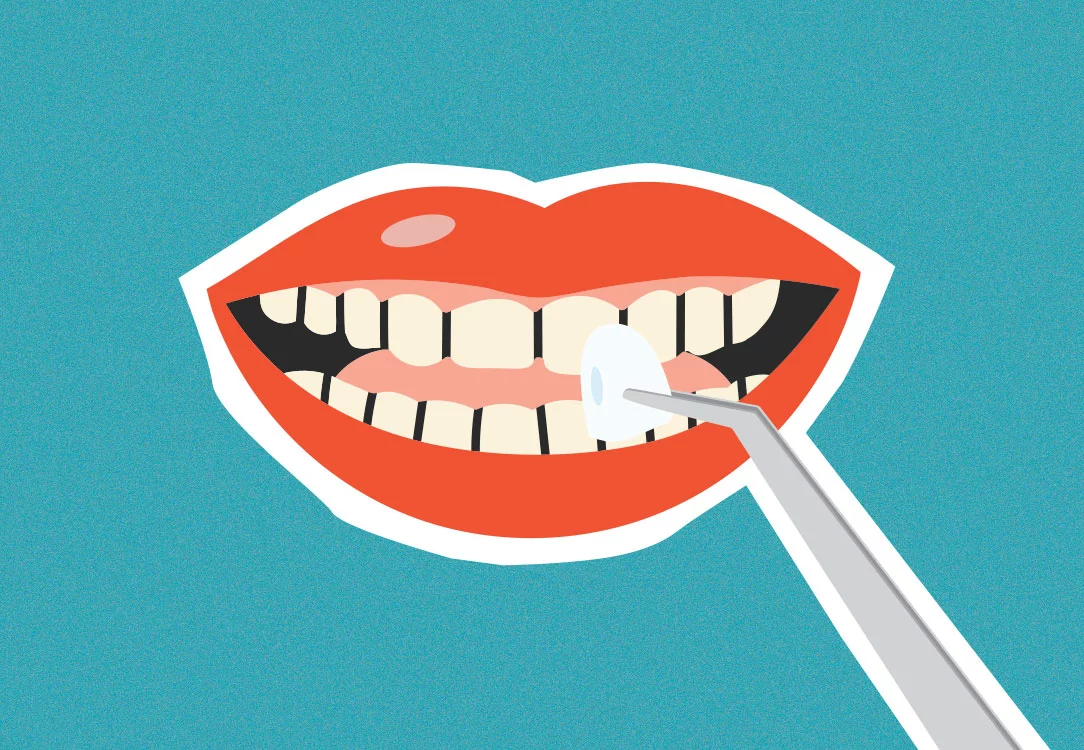What Is a Good Alternative to Veneers?
There are plenty of good alternatives to veneers. These are 4 of the most popular dental veneer alternatives:
Whether you’re looking into caps vs. veneers, bonding vs. veneers vs. lumineers, or any number of other combinations, with so many options available, you’re certain to find the right one for you. Take stock of your own teeth – do you have broken, chipped, or cracked teeth? Or are you looking for a purely cosmetic result that will give you a beautiful smile? Knowing the root cause of the issue and your personal “why” will be helpful in making the right decision regarding treatment.
Veneers vs. Crowns
Veneers are primarily cosmetic, being applied directly to the teeth to improve the color of your smile or cover chips and cracks in teeth; while a crown can serve a cosmetic purpose, it is mainly restorative in nature. If you suffer from cracked, chipped, or damaged teeth, a crown may not just be the right option – it may be the only option to restore the functionality of a tooth. Check out the crowns vs. veneers pros and cons to ensure you have all the facts when taking the first steps toward your brand-new smile.
Pros
Cons
Although they are more durable than veneers, crowns are certainly not invincible. A poorly placed bite or unexpected injury can have you in the dentist’s chair with a cracked crown in no time. The process of applying a crown is also more invasive than other cosmetic treatments, such as veneers. Quite a bit of enamel must be removed from the tooth before putting on a crown, so reversing the procedure in the future is not a possibility. Crowns can also cause tooth sensitivity, which most likely will be temporary – but could definitely cause some discomfort in the short term.
Cost

Veneers vs. Bonding
Veneers are like shells that are applied as a covering to a tooth after removing some enamel; bonding is a resin applied directly to the tooth after some etching of the enamel has been done by the dentist. Both are cosmetic treatments that can improve your smile by covering stains, chips, and other minor imperfections. While bonding does not last as long as veneers usually do, it is still a great alternative to veneers in many cases.
Pros
Cons
Cost
Veneers vs. Lumineers
Pros
Cons
Cost

Veneers vs. Teeth Whitening
The truth is that veneers offer much more coverage than teeth whitening. But if you aren’t looking for opaque coverage or to reshape the teeth and cover imperfections, professional teeth whitening treatment may be the way to go.
Pros
Teeth whitening can be a great alternative to veneers. Professional whitening treatments can be applied in one visit if the teeth have been prepped, so there isn’t the same delay as there is when waiting for molds to be made for veneers.
Cons
Cost
Additional Dental Veneer Alternatives
Find a Cosmetic Dentist Near Me
No matter how you go about getting it, a beautiful smile is priceless. There are many cosmetic dentistry options that can restore both the functionality and the beauty you share with the world through your smile. If you’re considering veneers vs. lumineers vs. crowns or any other combination of options and are having trouble deciding what the right choice is in your particular situation, it may be time to seek the wise counsel of a dental professional. Check out the Smile Generation search tool to find a caring, capable cosmetic dentist near you to learn more about the veneer process. Bonus tip – if you are concerned about the cost of alternatives to veneers, Smile Generation Financial is available to find the payment solutions you need to get the smile you’ve always wanted.
Find your trusted, local dentist today!
Sources
- Healthline. (n.d.). Dental veneers: Benefits, types, costs, and more. https://www.healthline.com/health/dental-veneers#which-veneers-are-best (Accessed June 18th, 2025)
Smile Generation blog articles are reviewed by a licensed dental professional before publishing. However, we present this information for educational purposes only with the intent to promote readers’ understanding of oral health and oral healthcare treatment options and technology. We do not intend for our blog content to substitute for professional dental care and clinical advice, diagnosis, or treatment planning provided by a licensed dental professional. Smile Generation always recommends seeking the advice of a dentist, physician, or other licensed healthcare professional for a dental or medical condition or treatment.









